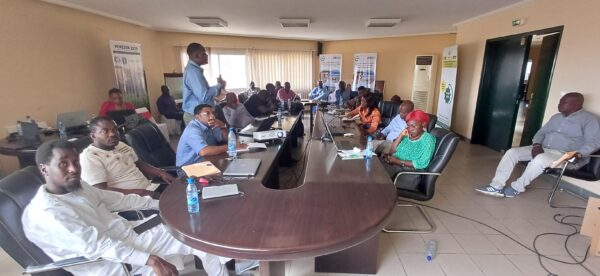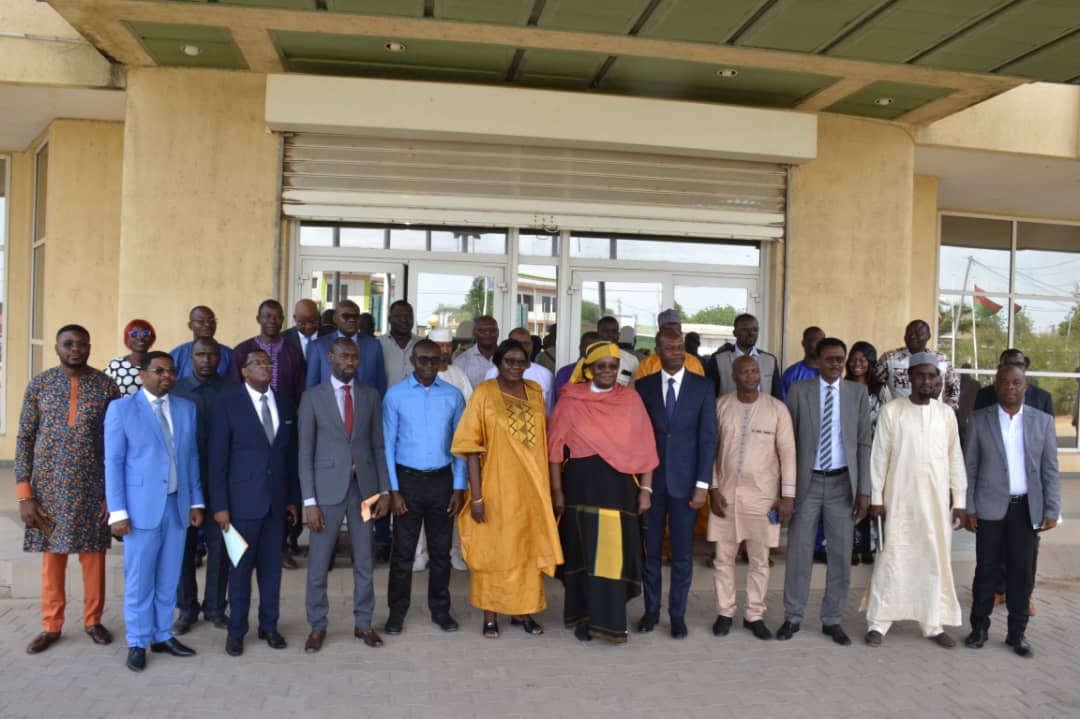The International Union for the Conservation of Nature (IUCN) successfully launched their project Support for the Sustainable Management of Aquatic Ecosystems in the Chari-Logone sub-Basin, a JRS project that aims to create databases on aquatic biodiversity for the fish value chain on the N. Cameroon and W. Chad sub-Basin. Project Director Armel MEWOUTH, shared the following report of the project and the gathering of stakeholders of this pioneer project.

Strengthening cooperation among countries that share critical watercourses is essential to bring about improvements in the management of aquatic biodiversity, fishing practices and the value chain of fishery resources. A key part of this is sharing of data and information between countries and databases can be powerhouses of knowledge about fisheries resources.
To address this, the Economic Commission for Livestock, Meat and Fisheries Resources (CEBEVIRHA) and the International Union for Conservation of Nature (IUCN) are collaborating to provide the sub-region with an effective, reliable tool for ongoing statistical data on the fishery resources of the Chari-Logone sub-basin (CLSB), shared by Cameroon and Chad. With a lack of baseline data collection in recent years, information on aquatic biodiversity and fishery resources is diffuse and unreliable between the two countries.
CEBEVIRHA and IUCN initiated the project “Support for the sustainable management of databases of aquatic ecosystems of the Chari-Logone sub-basin” to contribute to the production of free and accessible data on aquatic biodiversity and associated fishery value chains. On the morning of November 2, 2023, a launch workshop for this project was held in Ndjamena, Chad. Some forty participants from CEBEVIRHA, ministries in charge of fisheries, and universities in Cameroon and Chad were informed about the objectives, activities to be carried out and expected results of the project. Participant discussions focused on the synergy of action between the IUCN, CEBEVIRHA and the ministries in charge of fisheries of Cameroon and Chad in collecting data through the software and making it accessible to the general public. We reassured the participants that this dimension was part of the project requirements and that this concern is actually taken into account.
Following the launch of the project, from November 2-4, 2023, a training session was held on the identification of indicators and the data collection process. This session brought together 25 experts including directors, heads of ministries responsible for fisheries and academics from Cameroon and Chad. For two and a half years the work focused on four essential themes: feedback from experience in the collection and dissemination of data on fishery resources (i), the principles of collection and establishment of databases (ii ), the sampling process (iii), the configuration of the collection software, the compatibility and the capabilities of the CEBEVIRHA website (iv). Each theme was the subject of a presentation followed by discussions with the participants. The group work above all allowed the participants to discuss among themselves, to establish an exhaustive list of indicators, an initial sampling of collection sites and to reflect on the involvement of trainees/researchers in the collection of data and production of knowledge from the databases set up.

“I am very happy with the launch of the project and with this excellent training session in which I participated in Ndjamena, Chad. I would like the system to be put in place for data collection to truly be a means of producing statistical databases on aquatic ecosystems and the fish value chain in the Chari-Logone sub-basin. That these databases which will be generated through this project can help Cameroon and Chad to initiate concrete actions for sustainable development of fisheries in this very fragile ecosystem in order to reduce poverty and conflicts linked to resource management.” Dr Elie BADAI, Director of the Brigarde for the Control and Surveillance of Fishing Activities at the Ministry of Livestock, Fisheries and Animal Industries of Cameroon
Dr Elie BADAI (photo/IUCN)
The next actions of the project revolve around three essential elements: finalizing the design of the data collection software, the list of indicators for the data collection sheets and carrying out the first tests in December 2023.

